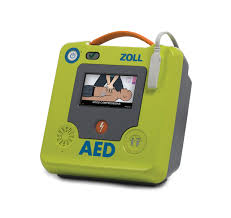Early childhood is a time of incredible growth, exploration, and learning. During these formative years, children develop the foundational skills they will use throughout their lives. Paediatric occupational therapy plays a critical role in supporting this development, helping children overcome challenges, enhance their abilities, and reach their full potential. By focusing on both physical and emotional growth, paediatric occupational therapy empowers children to navigate everyday life with confidence and independence.
What is Paediatric Occupational Therapy?
Paediatric occupational therapy is a specialised form of therapy designed specifically for children. It addresses the various skills children need for daily activities, including self-care tasks like dressing and feeding, fine motor skills such as writing or using utensils, and social interactions that build confidence and communication. Unlike general therapy, paediatric occupational therapy looks at the whole child, considering physical, sensory, emotional, and cognitive development.
Occupational therapists work closely with children, parents, and teachers to create personalised programmes that meet each child’s unique needs. By using fun, engaging activities, therapists make learning and skill-building enjoyable, encouraging children to participate actively in their own development.
Why Early Intervention Matters
The early years of a child’s life are the most critical for brain development. During this time, the brain is highly adaptable, meaning children can learn new skills and overcome challenges more easily than later in life. Early intervention through paediatric occupational therapy can prevent potential difficulties, improve self-confidence, and enhance overall learning capabilities.
When developmental delays or difficulties are identified early, occupational therapists can provide targeted support to strengthen areas that may be underdeveloped. This early support helps children build coping strategies, improve coordination, and develop the skills needed for academic success and everyday life. By addressing challenges sooner rather than later, children are more likely to experience long-term benefits and greater independence.
Building Motor Skills and Physical Coordination
A significant focus of paediatric occupational therapy is developing both fine and gross motor skills. Fine motor skills involve precise movements, such as holding a pencil, buttoning a shirt, or using scissors. These skills are essential for school readiness and everyday activities. Gross motor skills, on the other hand, involve larger movements such as running, jumping, climbing, and balancing. These skills are vital for physical health, confidence, and participation in play and sports.
Occupational therapists use a variety of fun, hands-on activities to help children improve their motor skills. For example, obstacle courses, arts and crafts, and interactive games can all be part of therapy sessions. By practising these activities regularly, children gradually strengthen their coordination, dexterity, and body awareness, which are crucial for independence and overall development.
Supporting Sensory and Cognitive Development
Some children experience challenges in processing sensory information, which can impact behaviour, learning, and social interactions. Paediatric occupational therapy helps children learn how to respond appropriately to sensory stimuli, whether it’s noise, touch, or movement. By improving sensory processing skills, children can become more focused, calm, and confident in various environments.
Cognitive development is another crucial aspect of therapy. Occupational therapists design activities that enhance memory, problem-solving, attention, and organisational skills. This helps children manage tasks more effectively and prepares them for school and everyday challenges. Play-based learning is often used in therapy to make cognitive exercises enjoyable and practical.
Enhancing Social and Emotional Skills
Paediatric occupational therapy also plays a crucial role in social and emotional development. Children learn how to manage emotions, express themselves appropriately, and interact positively with peers. Therapists help children develop essential life skills, such as coping with frustration, sharing, taking turns, and building friendships.
These social and emotional skills not only improve relationships but also build resilience and confidence. Children who receive support in these areas are more likely to adapt to change, handle challenges effectively, and engage positively in both school and community settings.
Tailored Programmes for Individual Needs
One of the strengths of paediatric occupational therapy is its personalised approach. Every child is different, and therapists carefully assess each child’s strengths, challenges, and developmental goals. Based on these assessments, therapists create customised programmes that focus on areas where the child needs support.
Activities are often designed to be fun and engaging, helping children stay motivated and enthusiastic about learning. Therapists also provide guidance for parents and educators, suggesting ways to reinforce skills at home and school. This collaborative approach ensures that children receive consistent support across all environments, which maximises their progress and development.
Collaboration with Families and Schools
A successful paediatric occupational therapy programme involves strong collaboration between therapists, families, and educators. Parents play a vital role in supporting therapy goals, as practising skills in everyday situations reinforces learning. Educators also contribute by integrating therapy strategies into classroom activities, allowing children to apply their skills in real-life settings.
This team-based approach ensures that children receive consistent support, promoting long-term success. By involving families and teachers in the therapy process, children benefit from a nurturing environment that encourages growth, independence, and confidence.
Final Thought
Paediatric occupational therapy is a powerful tool for helping children thrive during their early years. By addressing physical, sensory, cognitive, and emotional development, it equips children with the skills they need to succeed in school, social settings, and daily life. Early intervention and personalised support can make a lasting difference, helping children overcome challenges, build confidence, and reach their full potential.
Investing in paediatric occupational therapy during the critical years of early childhood can unlock a child’s abilities and create a foundation for lifelong success. With the guidance of skilled therapists, children are empowered to explore, learn, and grow with independence and resilience.



